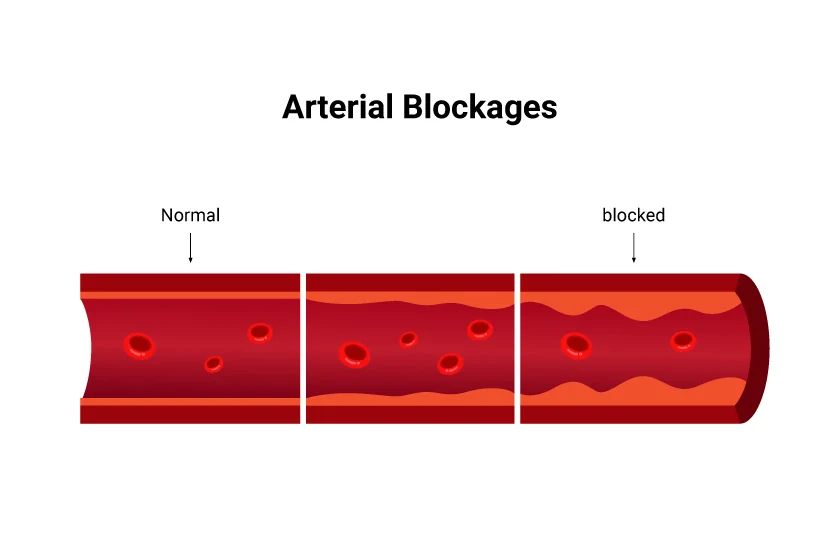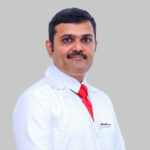
Picture this
A child’s birthday party, laughter echoing, colorful decorations hanging, and a table piled high with sugary treats—cakes, candies, and sodas.
Now imagine this innocent celebration paving the way to a future filled with health complications. Scary, right?
In India, where sweets are integral to our celebrations and daily lives, the excessive consumption of sugar has become a growing concern.
According to the National Health Profile, about 14.4% of Indian children aged 5-19 years are overweight or obese, a statistic that’s been rising alarmingly in recent years.
But why should we be worried about sugar and our children’s health? The connection between high sugar intake and arterial blockages is a looming threat that parents need to understand and act upon.
Let’s dive into this sweet but dangerous topic and explore how we can prevent arterial blockages from a young age.
Understanding the Sugar-Arterial Blockage Connection
What is an Arterial Blockage?
An arterial blockage occurs when plaque, which is a mixture of fat, cholesterol, and other substances, builds up in the arteries. This buildup can restrict blood flow, leading to serious health issues like heart disease and stroke. While these conditions are often associated with adults, the foundation for such problems can be laid in childhood.
Also Read: Link Between Carotid Artery Disease and Stroke
How Does Sugar Contribute?
Excessive sugar intake, especially from sugary drinks and sweets, can lead to obesity, insulin resistance, and increased bad cholesterol levels—all of which contribute to plaque formation in arteries. Children who consume high amounts of sugar are at risk of developing these conditions early, setting the stage for cardiovascular problems later in life.
The Sugar Overload
India is known for its rich culinary traditions, and sweets are a significant part of our culture. However, this love for sugary foods has its downsides:
- Consumption Statistics: According to the Indian Council of Medical Research (ICMR), the average sugar intake among Indian children is significantly higher than the recommended levels. Many children consume more than double the amount of sugar advised by health experts.
- Health Impact: Studies show that Indian children are increasingly being diagnosed with lifestyle-related conditions such as obesity, diabetes, and hypertension, which were once considered adult diseases.
- Cultural Challenges: Reducing sugar intake can be particularly challenging in a culture that celebrates with sweets. However, it is crucial to strike a balance between tradition and health.
Preventive Measures for Parents
1. Educate and Be a Role Model
Children often mimic their parents’ behavior. By making healthier choices yourself, you set a positive example. Educate your children about the harmful effects of excessive sugar and encourage them to make healthier choices.
- Healthy Alternatives
Introduce natural sweeteners and healthier snacks. Fruits, nuts, and homemade treats with reduced sugar can be delicious and nutritious alternatives to traditional sugary snacks.
- Balanced Diet
Ensure your child’s diet includes a balance of fruits, vegetables, whole grains, and proteins. Limit processed foods and sugary drinks. A balanced diet can help maintain a healthy weight and reduce the risk of developing cardiovascular diseases.
- Regular Physical Activity
Encourage your children to engage in physical activities. Whether it’s sports, dancing, or simply playing outside, regular exercise helps maintain a healthy weight and promotes cardiovascular health.
- Regular Health Check-ups
Routine health check-ups can help monitor your child’s growth and detect early signs of health issues. Regularly checking cholesterol levels, blood pressure, and blood sugar levels can help in early intervention
Conclusion
Preventing arterial blockages from a young age begins with the choices we make for our children today. By reducing sugar intake and promoting a healthy lifestyle, we can set the foundation for a healthier future. It’s not about eliminating all sweets but finding a balance that allows our children to enjoy treats without compromising their health.
For parents in Vadodara, Dr. Sumit Kapadia, the best vascular surgeon in Vadodara, offers expert advice and care in managing cardiovascular health.
Remember, it’s never too early to start making healthier choices. Let’s protect our children from the sweet dangers and ensure they grow up healthy and strong.
For more information and professional advice, visit Dr. Sumit Kapadia at Aadicura, Vadodara’s premier healthcare facility. Let’s take the first step towards a healthier future together!
FAQs
The World Health Organization recommends that children should consume no more than 25 grams (about 6 teaspoons) of added sugar per day. This includes sugars added to foods and drinks, not naturally occurring sugars found in fruits and milk.
Artificial sweeteners can be used as a sugar substitute, but they should be consumed in moderation. Some studies suggest that excessive use of artificial sweeteners may have adverse effects. It’s best to opt for natural sweeteners like honey or jaggery in small amounts.
Gradually reduce the amount of sugar in their diet and replace sugary snacks with healthier options. Get creative with recipes to make them more appealing. Encourage a variety of flavors and textures to make healthy eating enjoyable.
Signs of excessive sugar consumption include weight gain, hyperactivity, frequent mood swings, tooth decay, and increased thirst. If you notice any of these signs, it might be time to reassess your child’s diet.
Occasional indulgence is fine, but moderation is key. It’s important to ensure that sugary treats are not a regular part of your child’s diet. Balance is essential to maintaining good health.

MBBS, MS, MRCS, DNB-Fellow
Dr. Sumit Kapadia
Dr. Sumit Kapadia / MR KAPADIA SUMIT a gold-medalist from Baroda Medical College, obtained his general surgical training and senior residency from SSG Hospital, Vadodara.

MBBS, MS, MRCS, DNB-Fellow
Dr. Sumit Kapadia
Dr. Sumit Kapadia / MR KAPADIA SUMIT a gold-medalist from Baroda Medical College, obtained his general surgical training and senior residency from SSG Hospital, Vadodara.



